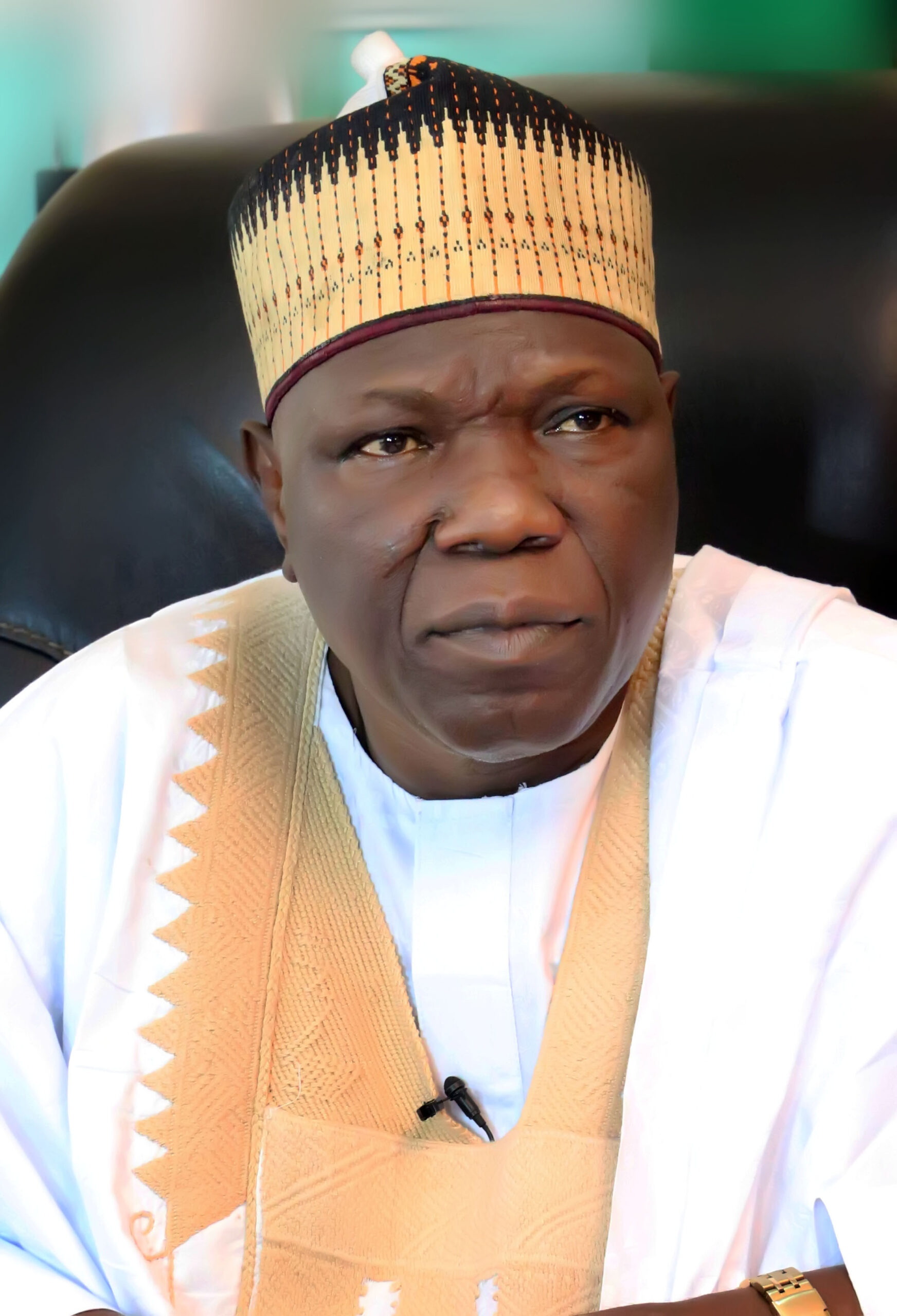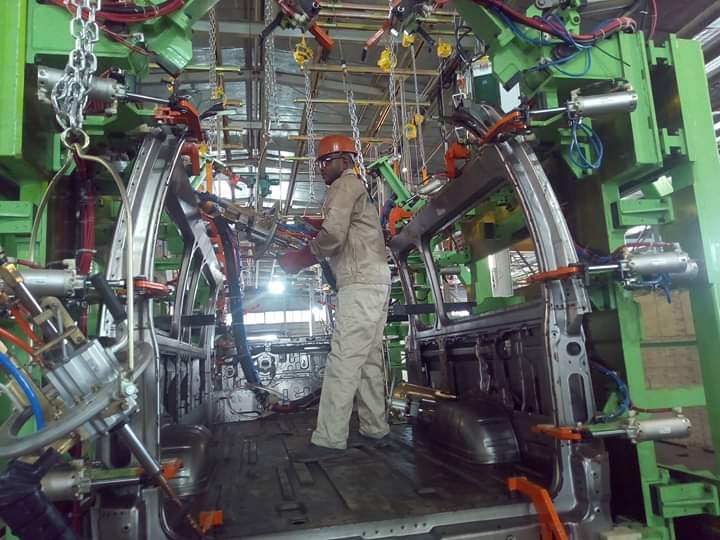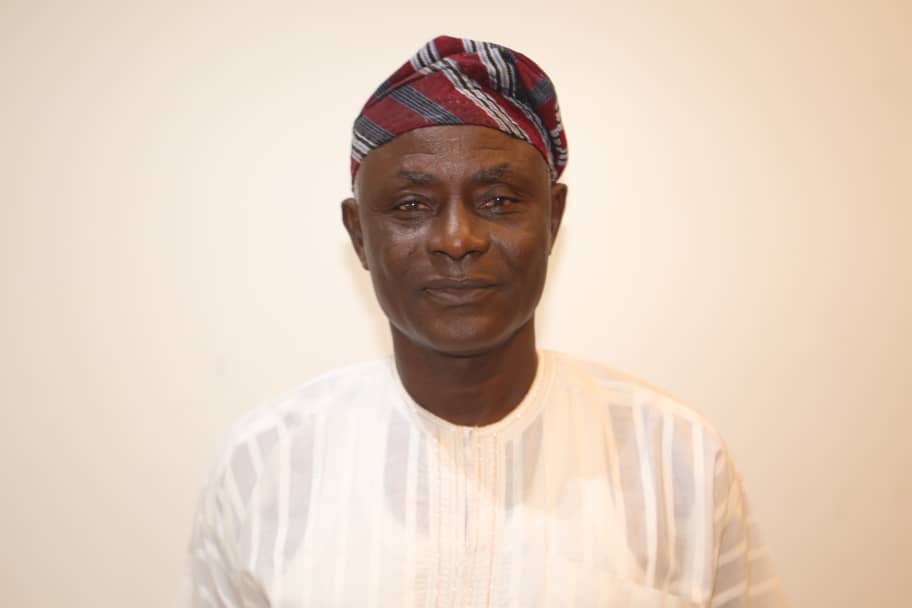Auto
Why FRSC places emphasis on personnel training – Oyeyemi

- Explains marshals’ role in curbing COVID-19, kidnapping
The Federal Road Safety Corps (FRSC) says it is regularly organizing training for its personnel and sending some on courses that will make them perform better on their job for the benefit of the society.
Corps Marshal of the FRSC, Boboye Oyeyemi, stated this in Lagos on Saturday, just as he stressed the corps would deepen its enlightenment of travellers and motorists on the need to observe the guidelines on social distancing and other protocols against COVID-19, kidnapping and other dangers they could be exposed on the highways.
He spoke at a capacity building workshop in Lagos on Saturday organized by the Nigeria Auto Journalists Association.
Oyeyemi, in a keynote address delivered at the event through the Corps Public Enlightenment Officer at the FRSC, ACM Bisi Kazeem, said the workshop aligned “fully with our own vision of developing the competencies of our personnel for improved service delivery.
“That’s why training and retraining of our personnel for positive impact on the motoring public has been part of our development agenda in the past six years of my management.
“Moreover, we are conscious of the fact that whatever training that our personnel receive will remain incomplete, if a strategic stakeholders like the Nigeria Auto Journalists Association who report on the world of motor vehicles are not given similar exposure in the field to complement the efforts.”
The FRSC boss said his personnel would deepen campaigns on social distancing by travellers and motorists and other guidelines to curb the spread of COVID-19, bandit attacks and abductions.
He said, “Recently, the nation was thrown into series of security challenges characterised by kidnapping of travellers, banditry and armed robbery all of which are automobile transportation-based.
“In addition, the nation was faced with COVID-19 pandemic which requires adherence to social distancing protocols by passengers at the parks and inside the vehicles.
“The responsibility of explaining these Federal Government’s directives and ensuring compliance by all fell on the shoulders of the FRSC which is the lead agency in matters of traffic management and safety administration in the country.”
He was optimistic the workshop would lead to the attainment of the goals of well trained auto journalists capable of delivering on the professional competence of reporting the dynamics of modern automobile industry.
“This is more so that the sophistication in auto engineering, reportage as well as the growing reliance on automobile as a veritable means of transportation for private and commercial purposes has made expert knowledge of the industry inevitable.
“People require assurances of the type of choice they could make in their means of transportation and the type of vehicles that could satisfy their safety and adventure needs.
“This, therefore, makes it imperative that there must be journalists with sufficient technical knowledge on the make, mechanics and technology that determine the type of choices that people could make in their automobiles.
“This workshop, therefore, provides opportunity for such knowledge, and it’s my hope that it would lead to the desired outcomes for the participants.”
Earlier, the Chairman of NAJA, Mr Mike Ochonma, stated that the workshop, an annual event by the association, was meant to train and re-train its members in the print, electronic and online media.
A senior lecturer at the Covenant University, Dr Oscar Odiboh, and a certified online expert, Mr Yusuf Aweda, were facilitators at the training programme.
Auto
Ore extols ex-NURTW President Yasin’s virtues at 68

Ore extols ex-NURTW President Yasin’s virtues at 68
Acting President of the National Union of Road Transport Workers (NURTW), Alhaji Aliyu Issa Ore, has described the former president of the union, Alhaji Najeem Usman Yasin, as a trade unionist per excellence with worthy administrative experience.
He stated this in his goodwill message on the 68th birthday of Alhaji Yasin
Ore, a former chairman of the Kwara State council of the union, said the achievements he recorded while in Kwara were as a result of quality advice and guidance from Yasin.
Ore explained that Yasin’s tenure as president of the union witnessed tremendous development and growth of the NURTW.
“His tenure as president of the union recorded first-class growth.
“He took the union to the global stage. For the first time, our union became a strong member of International Transport Federation (ITF).
“Apart from getting international recognition, he also built zonal council offices for all the zones. Before he came in, our zonal councils usually operated from rented apartment but his administration acquired land and built befitting zonal offices for all our zonal councils.
“Again, Alhaji Yasin ensured that the national headquarters of the union assisted many state councils to build their own councils secretariat. Through his guidance, most state councils now operate from their own state councils.”
He recalled the peace enjoyed by members of the union under Yasin, saying this ensured that the body had perfect transition arrangements devoid of thuggery and shedding of blood.
“Before he came into office, our election or change of leadership was usually bloody. But he put a system in place that put an end to thuggery and other violence in the union,” he said.
Ore also said Yasin’s tenure boosted the education of members and workers by ensuring that the union secured partnership with National Open University of Nigeria (NOUN) which enabled members to acquire university education.
“Members of staff also enjoyed opportunities to go for training and workshops to boost their knowledge,” Ore stated.
He prayed that Almighty Allah would continue to preserve him to witness more years in good health.

Auto
Innoson: Nnewi plant is active, we’re committed to producing top quality vehicles

Innoson: Nnewi plant is active, we’re committed to producing top quality vehicles
Nigeria’s first indigenous auto plant, Innoson Vehicle Manufacturing Company Ltd (IVM), based in Nnewi, Anambra State, has restated its commitment to continuous investment in the production of top quality vehicles for the Nigerian market and other African countries.
The company also said that rather than soft-pedal on this vision, it had in the past few years upscaled its production technology, in addition to embarking on a plant expansion and establishment of a new production facility in Nsukka, and CNG conversion factory in Owerri.
The Innoson management was reacting to a recent publication in a national daily which claimed that all the auto assembly plants in Nigeria are in ruins, and that about N500 billion investment made since the Nigerian Automotive Industry Development Plan (NAIDP) took effect in 2014 had not made any impact on the industry.
A press statement by the Head of Communications at Innoson Vehicles, Mr. Cornel Osigwe, said, ”Since our plant commenced vehicle manufacturing more than 13 years ago with a pledge to keep providing affordable vehicles to Nigerians without compromising on quality, we have gone beyond the initial mini buses and pick-ups, to add different models of sedans, SUVs, family vehicles, fire trucks, as well as city and inter-city buses of various sizes.
“We are always busy manufacturing these vehicles based on the demands from the government and the private sector.
“We also feel the pulse of users of our vehicles as well as the market generally, and the feedback so obtained helps us to enhance the quality of our products. It also helps us to determine what the market needs.
“About two years ago, we made history by becoming the first, and so far the only manufacturer of CNG/LNG-powered vehicles in Nigeria, for which we have earned many recognitions, including awards from The Sun Publishing, Silverbird and the Nigeria Auto Journalists Association (NAJA), all in 2023.
“Moreover, the presentation of Quality Management Certificate and the MANCAP Certificate by the Standards Organisation of Nigeria (SON) to Innoson in 2023 is a confirmation of our adherence to high international quality standards in the manufacture of our range of vehicles.
“So, with all these production activities and sustained investments, Innoson Vehicle Manufacturing Co, Nnewi, cannot be described as an assembly plant in ruins.”
The firm further disclosed that it upgraded its factory operations from manual production to semi-automation, and then to standard automation, resulting in the production capacity, increasing from 10,000 vehicles to 60,000 vehicles per annum.
“In line with the foresight of its Chairman, Dr. Innocent Chukwuma, CON, Innoson Vehicles has embarked on an ambitious multi-billion naira plant expansion project at Umuezena part of Umudim, Nnewi, which when completed in the next couple of months, will be dedicated to the manufacture of a wide range of the CNG/LNG-powered vehicles and heavy duty trucks.
“Innoson is also investing in the University of Nigeria Nsukka (UNN) where it is partnering with the institution to establish a plant that will be manufacturing units of 20HP Agricultural Tractor with the brand name Lion IVM,” it stated.
It also said, “Apart from the Umuezena and UNN projects, Innoson Vehicles is currently setting up an IVM CNG conversion centre at Naze, Owerri, Imo State.
“The state-of-the-art facility is for the conversion and retrofitting of fuel/diesel powered vehicles to CNG/LNG powered vehicles.”
The statement also gave insight into the company’s partnership with the Military, saying, “Innoson Vehicles has been collaborating with the Nigerian Air Force for the development and promotion of joint activities to sustain the maintenance of the Nigerian Air Force Air Asset and other associated Aerospace Ground Equipment, AGE.
“We are equally in partnership with the Nigerian Army for the modification of some of its equipment, local production of armoured fighting and utility vehicles.
“Recall that the Nnewi auto plant has in the past few years exported IVM vehicles to some African countries, including Sierra Leone, Niger, Congo, Ghana, Mali, Côte d’Ivoire and Burkina Faso.
“This has culminated in the company concluding plans with the government of Sierra Leone to establish an assembly plant in Freetown.
“Innoson Vehicles is on a mission to be a giant vehicle manufacturing company in Africa in order to serve Africa vehicle needs by its current expansion efforts.
“The range of products from the stable of IVM are affordable and within the reach of the Nigerian investing public who are in the transportation business, corporate organisations, government and its agencies at various levels, as well as individuals who desire the products, satisfactory service and exciting driving experience.”
The company, however, disclosed that there had been challenges in the industry which the founder, Chief Innocent Chukwuma, was hopeful the Federal Government would earnestly address through the new Automotive Policy.
Part of the statement also read, “The Innoson Group founder has since applauded the recent efforts by the Minister of Industry Trade & Investments Minister, Dr. Doris Nkiruka Uzoka-Anite, and the Director General of the National Automotive Design and Development Council (NADDC), Mr. Joseph Osanipin, towards effective implementation of the new Automotive Policy (NAIDP 2023).
“The recent inauguration of the NAIDP 2023 implementation committee in Abuja is a testament to the Federal Government’s commitment to making the new policy work.
“We are hopeful the new policy will be well implemented, and we support the efforts being made by the government and the NADDC in that direction.”

Auto
End of Ramadan: Celebrate with caution, NURTW scribe advises Nigerians

End of Ramadan: Celebrate with caution, NURTW scribe advises Nigerians
The Acting General Secretary of the National Union of Road Transport Workers (NURTW), Comrade Kayode Agbeyangi, has advised Nigerians, especially members of the union who are commercial drivers to celebrate with caution and in moderation during the end of Ramadan celebration.
He stated this in his goodwill message to members of the union.
Agbeyangi in a statement said, “I will implore our members to be moderate in everything they do while celebrating. They should know that excess of everything is bad.
“As drivers, they should always have it in mind that over-speeding kills and it should be avoided. Drivers should obey speed limit regulations.
“Apart from that, they should have it in mind that overloading their vehicles is equally dangerous and they should obey all traffic rules in order to arrive at their destinations safely.”
The NURTW scribe also used the occasion to call on drivers, especially those plying inter-state routes to ensure that their vehicles documents are up-to-date to avoid any confrontation with law enforcement agencies.
Part of the statement read, “Make sure all your papers like vehicle licence, insurance papers, road worthiness papers are in order so as not have any problems with police, FRSC men and other law enforcement agencies.
“Also, drivers should ensure that their vehicles are in good conditions to avoid any unpleasant situation while travelling. Check your tyres, your braking system, your wipers and lightning system. Make sure they are all in perfect working condition.
“And lastly, drivers especially those on inter-state routes should try as much as possible to avoid night travelling. Make sure you set out on time to avoid all the dangers and problems associated with night travelling.”
-

 metro6 days ago
metro6 days agoTroops arrest ISWAP commander involved in Army General, 3 soldiers’ killing in Borno
-

 News6 days ago
News6 days agoBREAKING: Ex-Abia gov, Ogbonnaya Onu, is dead
-

 metro7 days ago
metro7 days agoJUST IN: Actor Junior Pope resuscitated after death scare
-

 News7 days ago
News7 days agoHow to apply for new NIMC multipurpose ID card
-

 Sports5 days ago
Sports5 days agoKane’s three children involved in car crash, hospitalised
-

 News4 days ago
News4 days agoFG gives update on where fleeing Binance executive is hiding
-

 metro7 days ago
metro7 days agoAmotekun parades 45 suspected criminals in Ondo
-

 Entertainment5 days ago
Entertainment5 days agoTolani Baj expresses love for Bobrisky





















You must be logged in to post a comment Login